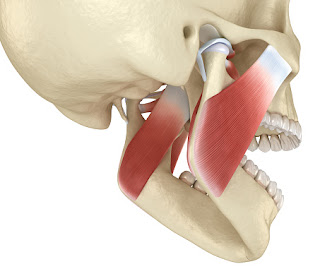Explanation For Meniere's Disease
Ménière's disease is a condition of the inner ear that causes sudden attacks of:
feeling like the room is spinning around you (vertigo)
a ringing noise inside the ear (tinnitus)
pressure felt deep inside the ear
hearing loss
Symptoms of Ménière's disease
During an attack of Ménière's disease, you may:
feel dizziness with a spinning sensation (vertigo)
feel unsteady on your feet
feel sick (nausea) or be sick (vomit)
hear ringing, roaring or buzzing inside your ear
have a sudden drop in hearing
These symptoms typically happen all at once and can last minutes or hours, but most commonly last 2 to 3 hours. The condition usually starts in 1 ear, but can spread to both ears over time. It can take a day or 2 for the symptoms to disappear completely. You may feel tired after an attack.
Symptoms vary from person to person, but an attack of hearing loss without vertigo is uncommon. Attacks can happen in clusters, or several times a week, or they may be separated by weeks, months or years. Ménière's disease most commonly affects people aged 20 to 60. It's uncommon in children.
See a GP if you think you may have Ménière's disease. It can lead to permanent hearing loss if it's not treated.
Causes
The cause of Meniere's disease is unknown. Symptoms of Meniere's disease appear to be the result of an abnormal amount of fluid (endolymph) in the inner ear, but it isn't clear what causes that to happen. Factors that affect the fluid, which might contribute to Meniere's disease, include:
Improper fluid drainage, perhaps because of a blockage or anatomic abnormality
Abnormal immune response
Viral infection
Genetic predisposition
Because no single cause has been identified, it's likely that Meniere's disease results from a combination of factors.
Complications
The unpredictable episodes of vertigo and the prospect of permanent hearing loss can be the most difficult problems of Meniere's disease. The disease can unexpectedly interrupt your life, causing fatigue and stress. Vertigo can cause you to lose balance, increasing your risk of falls and accidents.
Treatment
No cure exists for Meniere's disease. A number of treatments can help reduce the severity and frequency of vertigo episodes. But, unfortunately, there aren't any treatments for the hearing loss.
Medications for vertigo
Your doctor may prescribe medications to take during a vertigo episode to lessen the severity of an attack:
Motion sickness medications, such as meclizine or diazepam (Valium), may reduce the spinning sensation and help control nausea and vomiting.
Anti-nausea medications, such as promethazine, might control nausea and vomiting during an episode of vertigo.
Long-term medication use
Your doctor may prescribe a medication to reduce fluid retention (diuretic) and suggest that you limit your salt intake. For some people, this combination helps control the severity and frequency of Meniere's disease symptoms.
Non-Invasive Therapies and Procedures
Some people with Meniere's disease may benefit from other noninvasive therapies and procedures, such as:
Rehabilitation. If you have balance problems between episodes of vertigo, vestibular rehabilitation therapy might improve your balance.
Hearing aid. A hearing aid in the ear affected by Meniere's disease might improve your hearing. Your doctor can refer you to an audiologist to discuss what hearing aid options would be best for you.
Positive pressure therapy. For vertigo that's hard to treat, this therapy involves applying pressure to the middle ear to lessen fluid buildup. A device called a Meniett pulse generator applies pulses of pressure to the ear canal through a ventilation tube. You do the treatment at home, usually three times a day for five minutes at a time.
Positive pressure therapy has shown improvement in symptoms of vertigo, tinnitus and aural pressure in some studies, but not in others. Its long-term effectiveness hasn't been determined yet.
If the conservative treatments listed above aren't successful, your doctor might recommend some of these more-aggressive treatments.




Comments
Post a Comment